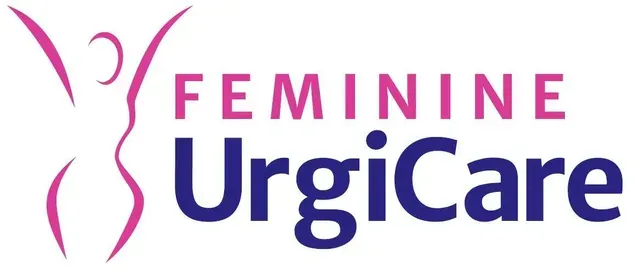
For our entire lives, we’ve been told to hydrate and get lots of sleep when we feel like we’re getting sick. As we grew up and drinking became a regular aspect of weekend activities, the running joke that alcohol “kills germs” and is therefore safe to drink when sick came about. “For the general population, for people who do get sick more frequently with a cold, or flu, or even pneumonia, it usually means that there’s some break down in the immune system,” says Heather Moday, M.D., physician and integrative immunologist.

Alcohol, COVID-19, and Vaccines
Additional analyses demonstrated that ethanol exposure promoted apoptosis by inducing breaks in the DNA of the T cells. This damage to the DNA most likely was mediated by ROS generation in response to RAS activation. Treatment with a compound that activates the VDR (i.e., a VDR agonist) restored the T cell’s VDR expression, down-regulated RAS expression as well as ROS generation, and thus preserved T-cell survival (Rehman et al. 2013). Excessive drinking can lead to cellular stress and inflammation, which increases the risk of pneumonia and other lung health issues. It can also impair the function of essential immune cells such as neutrophils and T cells in the gut. While it is well-established that heavy amphetamine addiction treatment drinking is detrimental to health, the effects of moderate alcohol consumption are less clear.
How does alcohol change immunity? 3 truths about lockdown drinking

Additional studies are required to fully understand the role of ethanol metabolites and adducts in the development of alcoholic liver injury and organ damage. Within the GI tract, alcohol exposure can also alter the number and abundance of microorganisms present within the microbiome, all of which play an important role in normal GI function. In addition to its adverse effects on GI functioning, the impact of alcohol on the GI microbiome can also alter the maturation and functions of the immune system. “Anyone with chronic liver conditions should be avoiding alcohol, for example, people with hepatitis, nonalcoholic fatty liver disease, liver inflammation, and any condition that could affect liver function would be a reason to avoid alcohol,” notes Favini. Research suggests that a flourishing network of gut bacteria can help your immune cells differentiate between normal, healthy cells and harmful invader organisms (13). Symptoms of alcohol withdrawal are linked to those who stop drinking alcohol after a long time of heavy drinking.
Cancer Risk
- In addition, chronic alcohol can decrease the number of B-cells that produce an antibody type called IgA5 in one of the layers of mucous membranes (i.e., the lamina propria), which is indicative of altered mucosal immunity (Lopez et al. 1994).
- The good news is that, nowadays, it’s pretty easy to find nonalcoholic options in bars and restaurants.
- Nicotine from cigarettes, chewing tobacco, or any other source can weaken your body’s ability to fight germs.
- In addition, animal studies have indicated that acute alcohol intoxication can decrease complement activation in response to tissue injury resulting from disruptions in blood supply (i.e., ischemic injury).
- So, if you’ve been winding down with a glass of wine in hopes of protecting your heart, the latest research suggests it may be doing more harm than good.
- EVs are portrayed as small vesicular structures traversing the extracellular space/bodily fluids.
These clinical observations were confirmed with cultured cells as well as in rodent studies. Treatment of a mouse cell line (i.e., A78-G/A7 hybridoma cells) with different concentrations of ethanol (25, 50, 100, and 200mM) for 48 hours resulted in a linear increase in IgM levels (Muhlbauer et al. 2001). Moreover, spontaneous IgA synthesis by peripheral blood mononuclear cells (PBMCs)— a mixed population of various white blood cells that also includes B cells—was higher in PBMCs isolated from alcoholic patients with liver disease compared with controls (Wands et al. 1981). IgA concentrations also were increased in a layer (i.e., the lamina propria) of the mucous membranes lining the intestine of adult female Wistar rats after acute ethanol administration (4g/kg intraperitoneally) for 30 minutes (Budec et al. 2007). Recent studies suggest that the increase in IgA levels may be mediated by an ethanol-induced elevation of the enzyme neuronal nitric oxide synthase (nNOS) in the animals’ intestine, because inhibition of nNOS before ethanol injection suppressed the IgA increase (Budec et al. 2013). However, additional studies are needed to fully uncover the mechanisms that underlie increased Ig production while B-cell numbers are reduced.

A wide range of behaviors and habits can boost immunity, including ensuring a healthy diet, getting enough exercise and sleep, and managing stress. Additional methods for promoting immunity include staying up to date with vaccinations, maintaining an active social life, and properly washing hands. It affects the development and function of T cells (white blood cells that fight infection) and other cells necessary for immunity. As a result, people who smoke are more susceptible to a wide range of illnesses—both short- and long-term ones.
For this reason, it is advisable to go to a rehab center, where the staff can help monitor worsening symptoms. Many people are becoming aware of the negative effects of alcohol and just how easy it is to become dependent on it. That’s why the “sober-curious” movement is gaining footing and helping people to re-evaluate their relationship to alcohol before it takes a turn for the worst. However, if you’re sick, the goal is to support your immune system as it fights off the infection. Immune-boosting methods should include getting enough sleep, eating well, and staying hydrated. Prebiotic-rich foods create a welcoming environment for beneficial bacteria in the gut, nourishing it and helping it thrive, so try to add lots of lovely prebiotic foods to your meals.

For example, the acetaldehyde that is formed during alcohol metabolism can drinking lowers immune system interact with other proteins in the cells, interfering with their function. Therefore, it is possible that acetaldehyde also interacts with antibodies and thereby may alter antibody responses; however, this remains to be established (Thiele et al. 2008). Similarly, more work is needed to determine whether alcohol inhibits specific aspects of B-cell differentiation, such as immunoglobulin class switching and cell survival. You might think that a regular glass of red wine or other alcoholic beverages might be good for your heart.
- The epithelial cells function as a physical barrier as well as regulators of the innate and adaptive immunity.
- One of the most effective ways to support your immune system is to stay current with your vaccinations.
- These changes in turn compromise the organism’s ability to respond to pathogens and contribute to increased susceptibility to infections.
If you drink every day, or almost every day, you might notice that you catch colds, flu or other illnesses more frequently than people who don’t drink. That’s because alcohol can weaken your immune system, slow healing and make your body more susceptible to infection. “The good news is that earlier stages of steatotic liver disease are usually completely reversible in about four to six weeks if you abstain from drinking alcohol,” Dr. Sengupta assures. Steatotic liver disease develops in about 90% of people who drink more than 1.5 to 2 ounces of alcohol per day. Over the long term, excess drinking can cause chronic systemic inflammation and impaired ability to defend against infections, Koob says. Alcohol also influences the functions of the lymphoid tissue and alter the activation, secretion, and functions of crucial immune cells called lymphocytes.
Binge drinking has been shown to reduce immune response
Prioritizing sleep, staying hydrated, and eating nourishing foods are just a few ways to support your immune system and reduce your risk of certain illnesses. The epithelial cells line the alveolar surface that faces the inside (or airspace) of alveoli, whereas the endothelial cells line the surface that faces the outside of the alveoli and the surrounding blood vessels. Alcohol has unique effects on the ciliated airways because it is rapidly and transiently absorbed from the bronchial circulation directly across the ciliated epithelium of the conducting airways.
